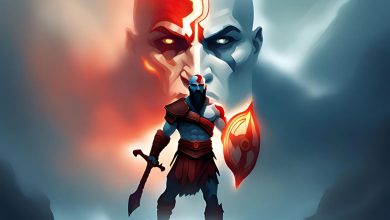Pan: Mortal God Immortalized by Words and Stories

Pan: Mortal God Immortalized by Words and Stories
God Pan… God of the fields and shepherds. We thought it would be important to write an article about this God in Greek Mythology. At the end of this article, we will learn the origins of some of the words in the language, where the name of a musical instrument comes from, and how Pan is intertwined with our culture. Let’s get to know one of the most interesting Gods in Greek Mythology.
First of all, who is Pan?
God Pan was born half goat half human. Legend has it that he was so ugly when he was born that his mother rejected him. The god Hermes, who is thought to be his father, took the god Pan to the other gods, but Pan could not find a place for himself among them. Other Gods despised him because of his appearance, and he was not even taken seriously by humans.
The God Pan spends most of his time in the countryside, where he feels most comfortable. Pan, therefore, became the God of the shepherds, of the fields. And he is dedicated to protecting Arcadia, which is depicted as heaven on earth in Greek Mythology.
The half-goat, half-human appearance of the god Pan is quite frightening for those who see it. In fact, most depictions of demons today are inspired by the image of the god Pan.

Image Source: Brechtbug Roddy McDowall – The Loved One – movie on MAC Laptop 8673 via photopin (license)

Image Source: Pinterest portrayed by Gui Brigaudiot
Does the Word Pan Have a Meaning?
The word pan means “whole” in Greek. Beliefs such as pantheism and panentheism also come from this origin. Since we can accept everything around us as nature, we can achieve the equality Pan=Whole=Nature. God Pan also represents the unity of nature and the universe. Therefore, in this article, he will often be referred to as the God of Nature.
Panic and Panic Attack
A sudden strong feeling of fear that prevents reasonable thought and action. This is how the Cambridge Dictionary defines the word “panic”. We have all faced this situation at some point in our lives. For a moment, our body is filled with such fear that we act without thinking rationally. This is what causes us to panic. And this word comes from the God of Nature.
It is said that Pan was a god who suddenly came to the sleeping children in the countryside and had fun, frightening them with his cries. He used this sudden cry against the enemies in the wars of ancient Greece. Here is the origin of the word panic, which means a sudden sense of fear. The panic attack is also used as a reference to the sudden appearance of Pan. This sudden fear is not only valid for English. Words originating from “pan” in many languages, such as “panik” in Turkish and “panique” in French, express this state of fear.
Pan Flute (Syrinx)
The legend goes like this: God Pan falls in love with a very beautiful fairy named Syrinx. Syrinx doesn’t want to be with Pan and turns herself into a water cane plant. Pan wants this fairy to be with him all the time because he is so in love. That’s why he cuts a few of the reeds and creates the wind instrument today called the Syrinx or the Panflute.
This story forms the origin of another new word. Since the syrinx comes from a wind instrument, it also forms the words lance and draw. In other words, another meaning of Syrinx in Ancient Greek is the words blowpipe and draw. Later, this word formed the word syringe, which means injector today.

Pan and Midas’ Donkey Ears
Pan was so talented that he managed to impress everyone with his flute. He even dared to challenge Apollo, the God of music, arts, sun, fire, and poetry. Apollo accepted this offer and appointed two juries. The juries listened to both Gods and began to explain their decisions. The first jury, the Mountain God Tmolos, was afraid of Apollo, so he immediately used his vote in favor of Apollo.
The second jury was King Midas. The Phrygian King did not want to lie and said, “Pan’s music was a little better“. God Apollo, who could not accept to be a draw in music against the half-goat God Pan, got very angry and punished King Midas.
He turned Midas’ ears into donkey ears, saying, “An ear that cannot distinguish beautiful music cannot be a human ear, a donkey’s ear suits you.”
Thus, the myth of Midas with Donkey Ears emerged.

The Peter Pan Story
We all know the story of Peter Pan, the mischievous boy who never grew up and never let go of his panflute. As you guessed, it’s no coincidence that the last name of our lead character in this story is Pan. Reference is made to Pan, the God of Nature. In addition, our other leading role, Tinker Bell, also depicts the fairies in many of the Pan legends.

The Sound of Pine Trees in the Wind and Pan
Yes, another legend about the sad love life of God Pan. In our story this time, God responds to Pan’s love. He is in a beautiful relationship with a fairy girl named Pitys. However, Boreas, the God of the North Wind, also likes Pitys. And one day he tries to have her by force. Gaia the Mother Earth saw the fairy who came face to face with death while trying to escape from the Wind, took pity on the fairy and turned her into a pine tree. The wind hitting the pine tree, therefore, makes a noise and saddens God Pan.
The characters in this myth have also managed to find a place for themselves in daily language.
Pitys, on the other hand, form the English word pine.
In fact, many languages use the word ananas, while in English, it is called pineapple. It is thought that the pineapple is used because of its resemblance to the cones of the pine tree.


Echo
The events of the god Pan do not end here. One day, this god with a stunning love life declared his love for a divinely beautiful fairy named Echo. However, he was again rejected. Pan could not accept this situation and provoked the shepherds. The shepherds cut Fairy Echo to pieces and murdered her. Since then, Echo’s death cries have been heard all over the mountains, meadows, and ridges. This is where the word echo, which we use in everyday language, comes from.
The word July and the Death of Pan
Yes, let’s go a little more into linguistics and start telling our new story. First of all, Pan had another feature that separated him from other Gods. Pan was a mortal god. His death was met with great sadness. It is believed that the equivalent of the god Pan in Sumerian Mythology is Tammuz, the god of the shepherds. The story told by the Fisherman of Halicarnassus in Anatolian Legends continues as follows:
On a hot summer day, the captains of the ships sailing in the Aegean Sea, passing by a reed, hear a mysterious voice shouting “Tammuz!, Tammuz”. They approach that sound timidly. That voice continues: “The Great God Pan is dead!”. In an instant, painful cries are heard from everywhere.
The month of that painful day was named Temmuz (which means July in English) after that day.
References and Further Readings
Balıkçısı, H., & Gökovalı, Ş. (1983). Anatolian legends . Ankara: Bilgi Publishing House.
Hunt, J. (2018, April 18). Why is a pineapple called a pineapple? Retrieved February 24, 2021, from https://www.mentalfloss.com/article/91098/why-pineapple-called-pineapple
Pan (god). (2021, February 24). Retrieved February 24, 2021, from https://en.wikipedia.org/wiki/Pan_(god)
Peter pan. (2021, February 20). Retrieved February 24, 2021, from https://en.wikipedia.org/wiki/Peter_Pan
You can access the sources of the images used by clicking on the images.
The proofreading has been done by Asu Pelin Akköse and Mete Esencan.
Would you like to support us?
- For more detailed information, you can check our “Support Us!” page!







